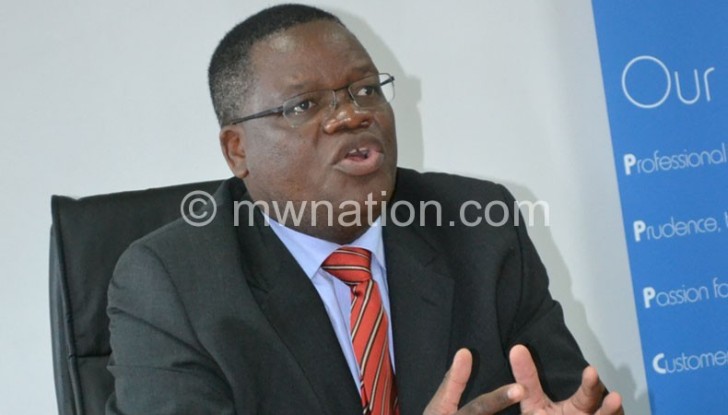Resources delay some PPP projects roll out
The establishment of a modern bus terminal, recreation park and parkade in the city of Blantyre which are currently on feasibility analysis may take longer due to resource constraints.
Public Private Partnership Commission (PPPC) chief executive officer Jimmy Lipunga in a written response to a questionnaire said some of the projects which are awaiting analysis are not taking off due to challenges in securing resources to finance feasibility studies.

He said the commission is currently supporting the city councils to tap on alternative modalities and private sector financing of feasibility studies.
Said Lipunga: “We want to invite investment banks to support these efforts on the basis that the amounts will be recouped from investors on financial closure.”
However, he said consultants have been identified to perform detailed feasibility studies, saying the bus terminal is a high priority considering the state of public transportation in the cities.
“Government would like to significantly improve the bus terminal facilities so that the quality of public bus passenger services within the city and beyond are facelifted. This will hopefully lessen the congestions on our roads and parking facilities especially in the city as everyone drives their own car,” he said.
According to Lipunga a lot of time is going to be taken to prepare the projects so that they are in a bankable state and the commission will have time frames for all these projects wherever possible.
He was however quick to mention the main challenge is establishing the bankability of the projects.
“Sponsoring agencies face the challenge of raising the level of resources required to facilitate the preliminary screening processes and feasibility studies.
“Currently we have requested government to consider establishing a Project Development Facility which will be a pool of trust funds to support line ministries and government agencies in preparing the projects for implementation,” he said.
After the formal privatisation programme which took a span of 15 years from 1996 to 2011 where a total of 100 enterprises were earmarked for privatisation, approximately 75 units had been privatised using different modes of privatisation.
The remainder of enterprises were basically utilities and public infrastructure which needed a different approach rather than through divestiture.
Following this government formulated the Public Private Partnership (PPP) Act to facilitate private sector participation in infrastructure on the premise that ownership of land and infrastructure will ultimately revert to the State.
Seven years after the transition to PPPs—contractual arrangements in which the State engages a private partners to design, finance, construct and operate infrastructure and in which significant risks are transferred to the private partner— PPPC has continued to facilitate access to public services to private sector players.
Meanwhile the PPPC also involved in the Mpatamanga Hydropower Project, in which the Ministry of Natural Resources, Energy and Mining is in the process of engaging IFC as an adviser and Co-Developer to commence the project and the Lilongwe Water Treatment Plant whose feasibility study on the project was completed by IFC and is now awaiting approval by the Ministry of Finance.
In an interview on Wednesday, Ministry of Energy, Mining and Natural Resources public relations officer Saidi Banda said government has and continues to engage investors to finance the project.
He said currently the World Bank has expressed interest to partner government to develop Mpatamanga site.





